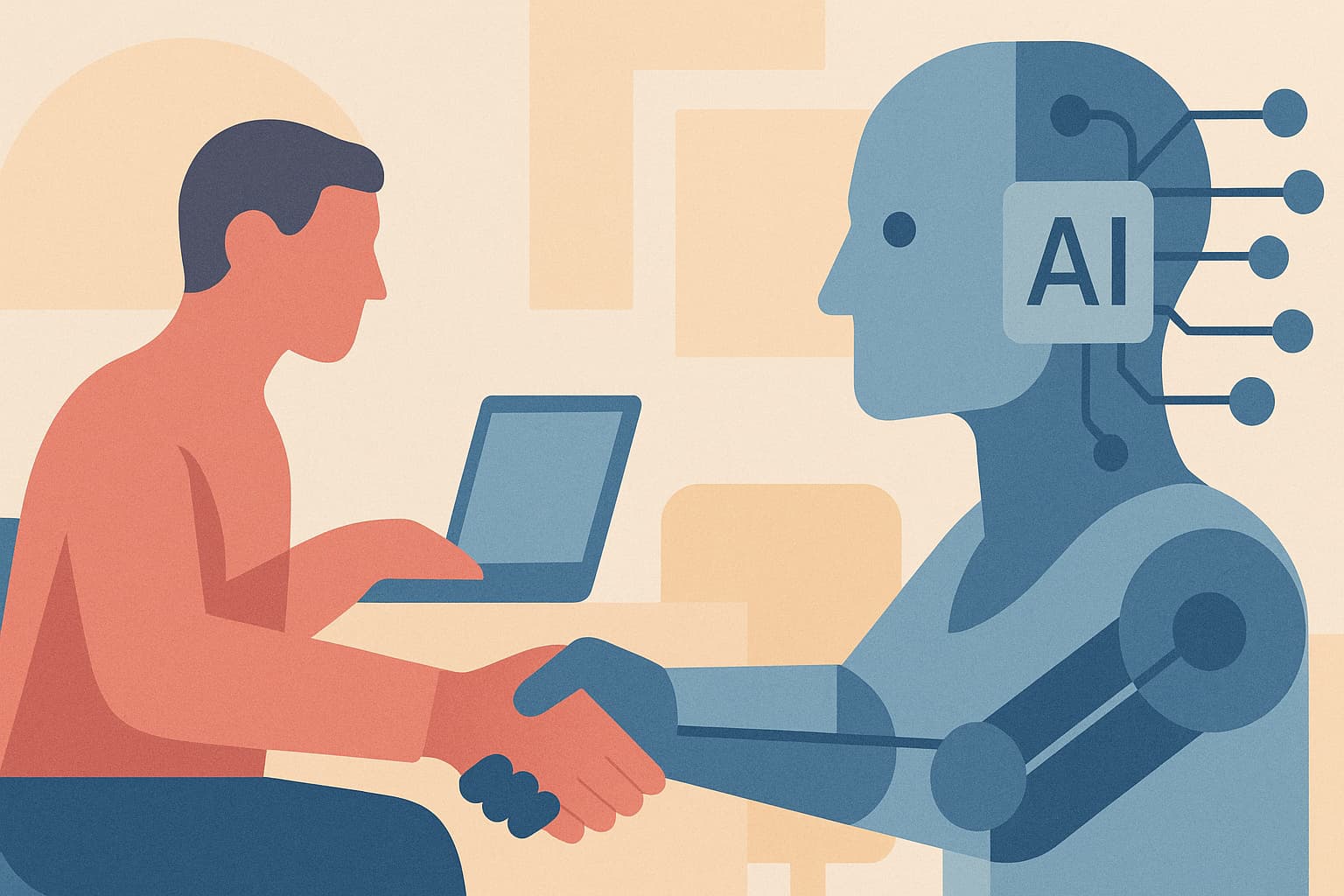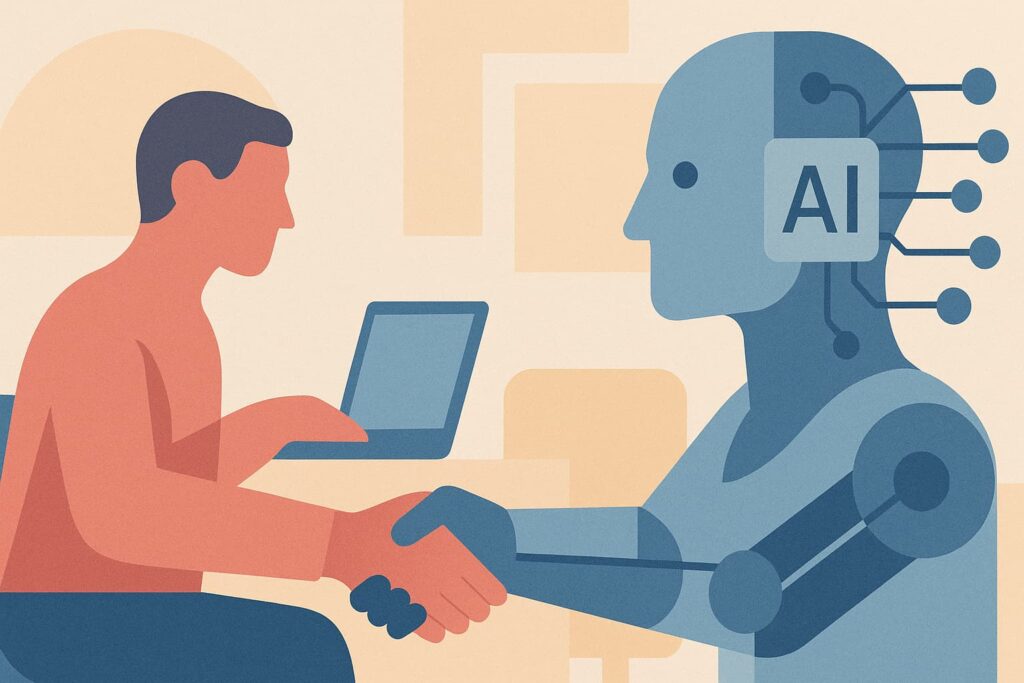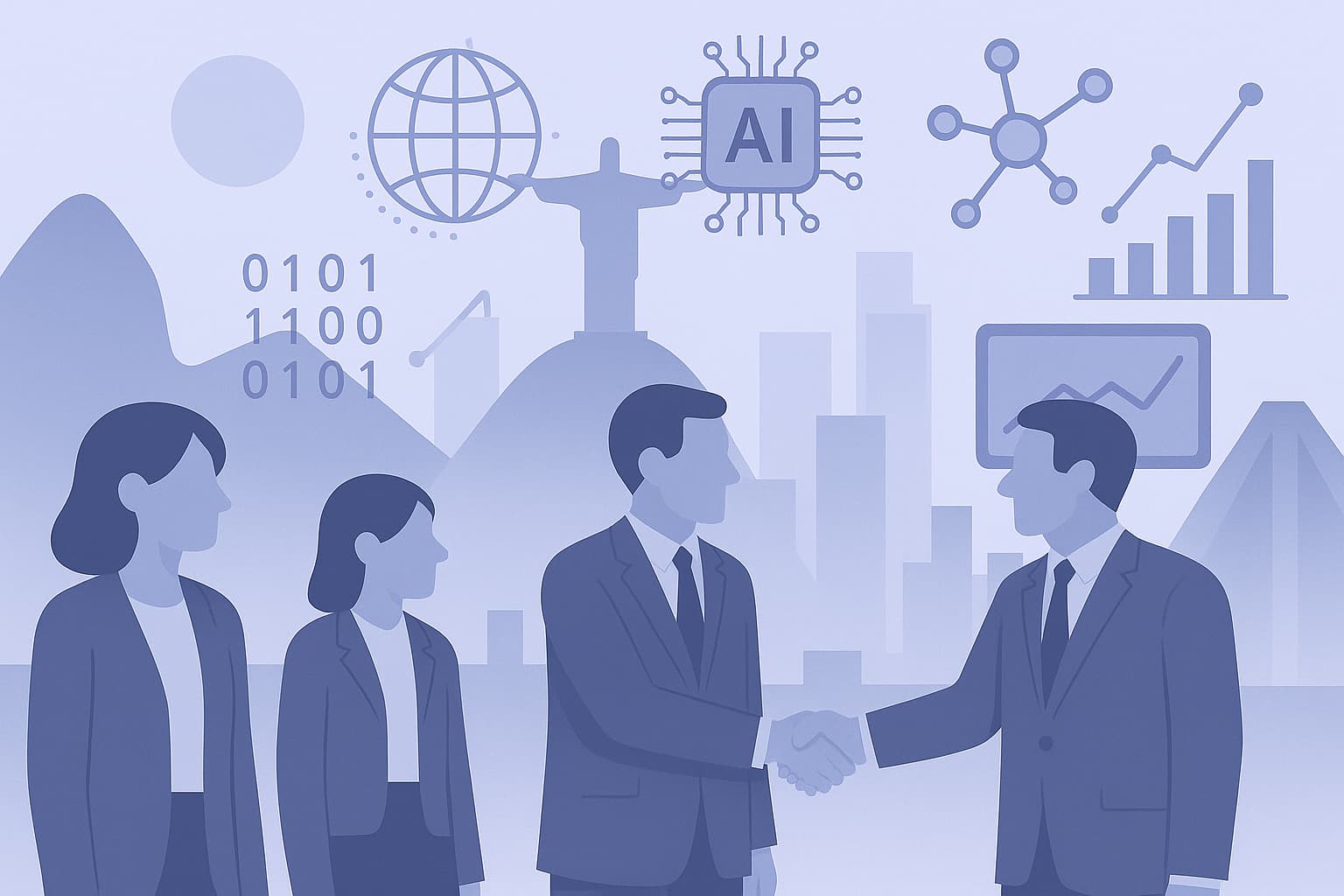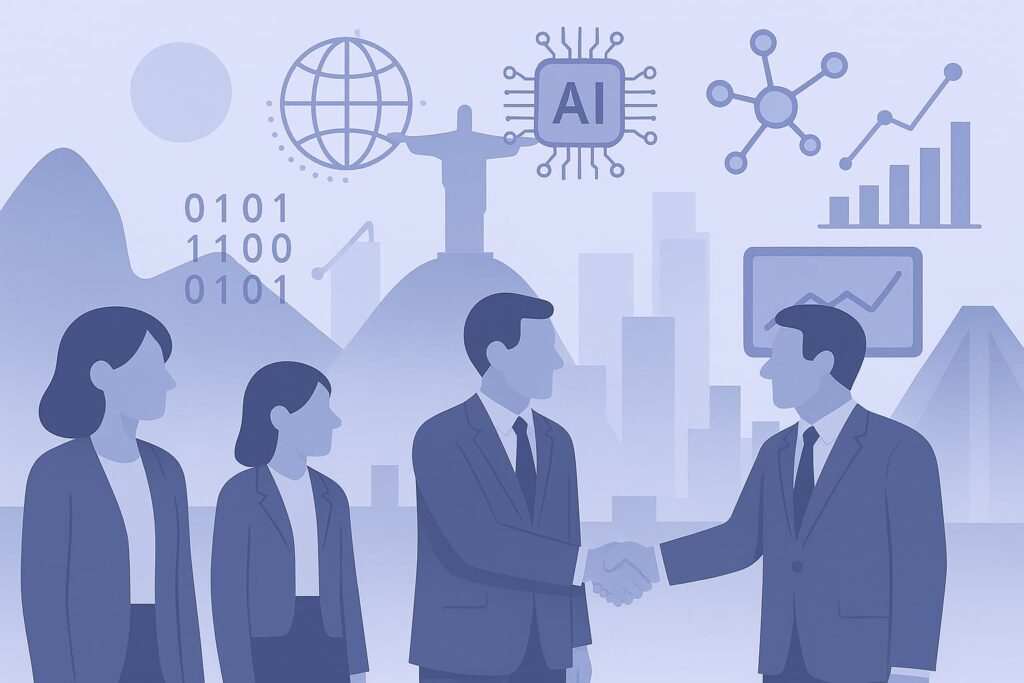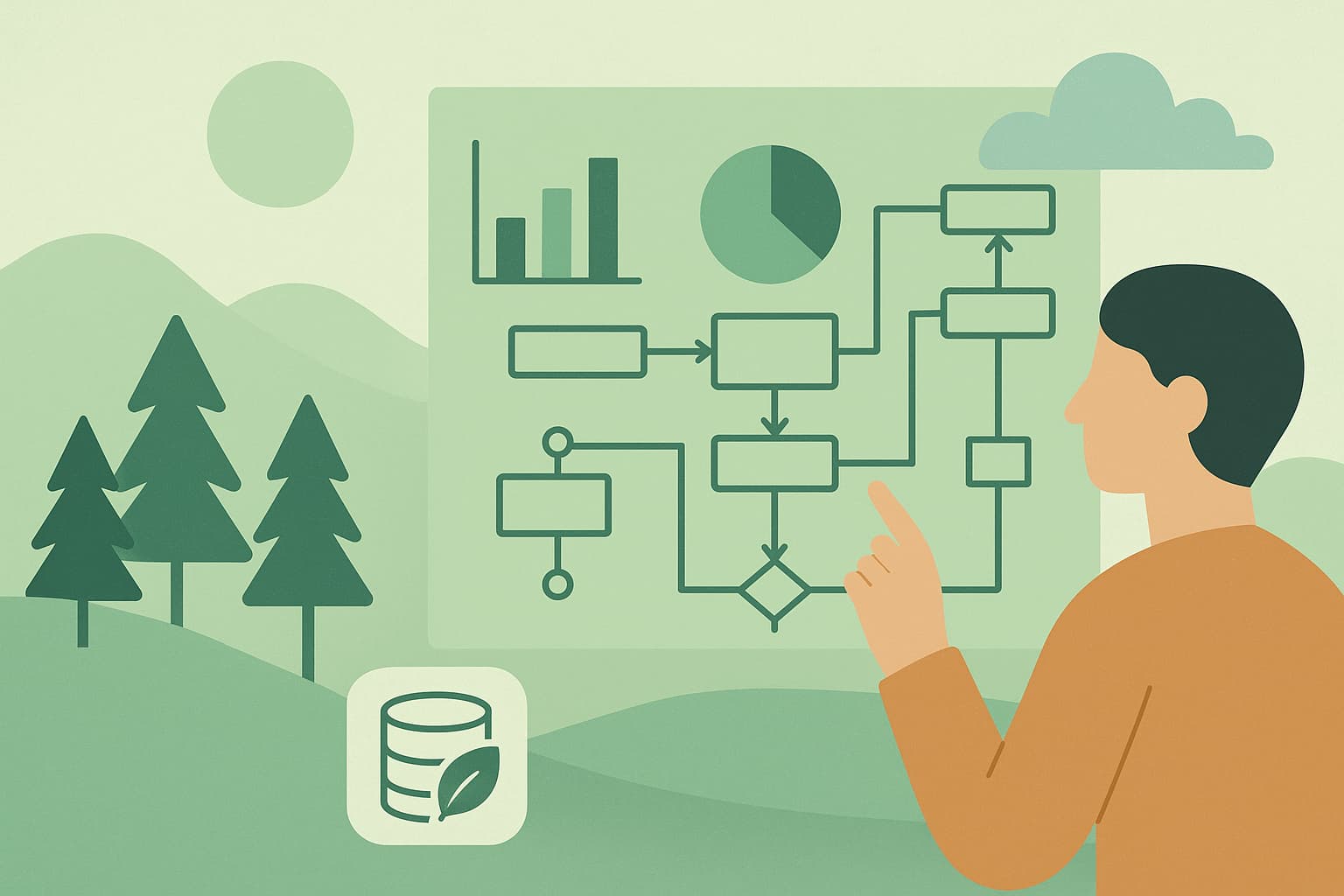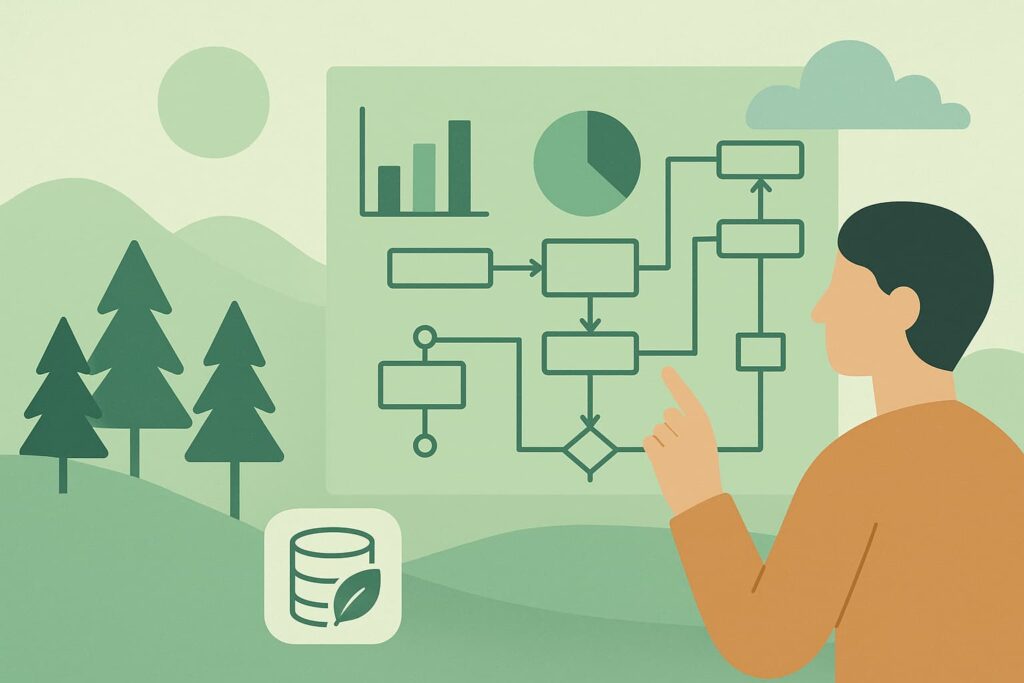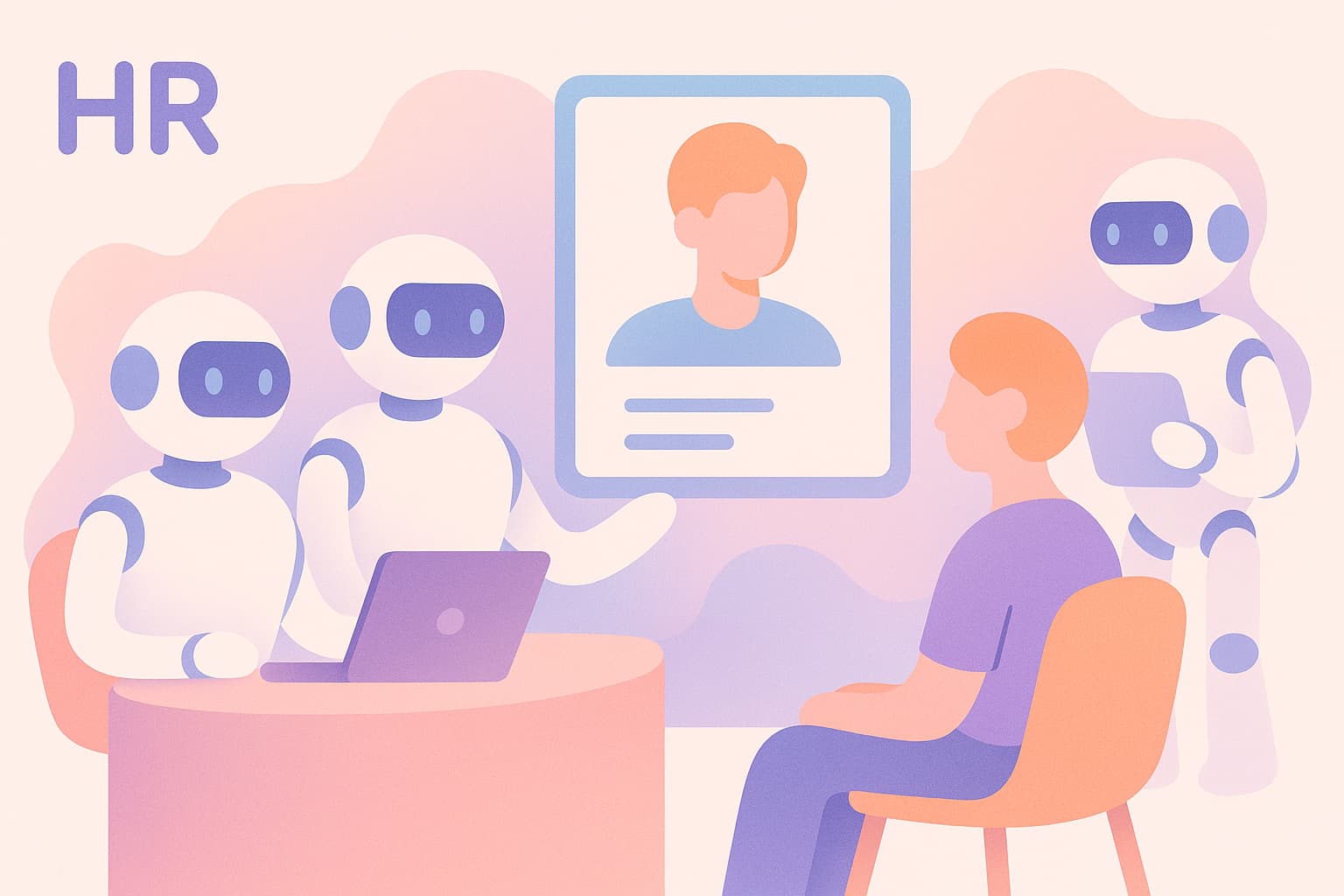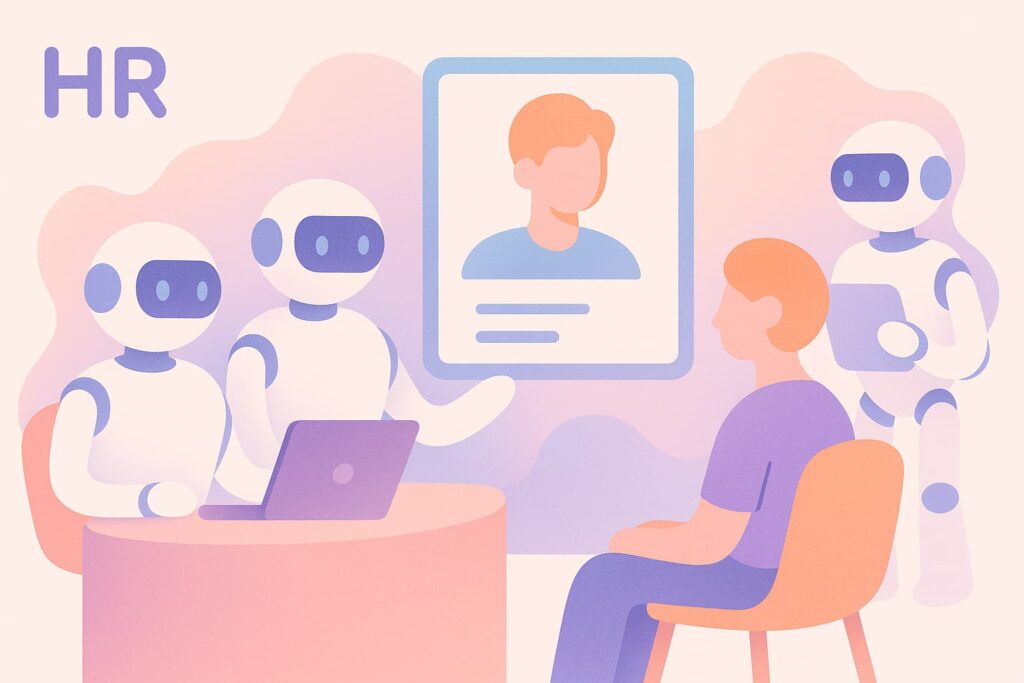By EloInsights
- EloGroup launched the report “Generative Revolution: The Impact of Artificial Intelligence on Business”, an updated and English version of “Revolução Generativa”.
- The report provides an overview of GenAI, its foundations and main players.
- The document also discusses the practical implementation of the technology, use cases and best practices.
Every year, the cycles of development and technological progress are renewed. Because of its impacts on the economy and within society, the emergence of information technology, personal computing and digital communication flow networks were once likened to a third industrial revolution. Nowadays, a new change is seen, a fourth industrial revolution that has at its centre the Generative Artificial Intelligence.
This technology makes it possible to machines to create texts, codes, images and even videos that are virtually indistinguishable from reality. Doing it all in a way that emulates the language of human beings, making it more difficult to differentiate between what is done by people or computers.
But, at the same time, this movement also raises an important question: can this revolutionary technology really be robustly, consistently, effectively and safely applied? It is to precisely answer this and some other questions on the matter that EloGroup has just launched the English and updated version of the report “Generative Revolution: The Impact of Artificial Intelligence on Business”.
In this document, produced based on the knowledge already accumulated by our AI & Data Science Studio, we set out to give an overview of this technology that is already transforming the way offices and workers in many areas run daily. GenAI is expected to move $4 trillion across different sectors, functional domains and industries, such as: Retail, Government, Infrastructure & Manufacturing, Supply Chains, Marketing & Media, Healthcare, Entertainment, Finance and Education.
What does the Generative Revolution report include?
The report presents basic concepts that help to understand more deeply how Generative AI works, like Machine Learning, Deep Learning and Neural Networks. It also explains the main technological advances that, in recent years, have enabled a leap forward in the development of these Large Language Models (LLMs), as well as mapping the main players currently running in the segment, both in the West and the East, providing their users with “state-of-the-art” models, specialised hardware and other related services.
At the heart of the report, we discuss how to apply GenAI in practices and, therefore, generate significant business value. We explain how GPT-4 can be used safely, without running the risk of having sensitive organisational data leaked or used in model retraining, pointing out some good practices to have in mind while using the technology.
The text remind that an AI project is, in essence, an Advanced Analytics project, and, because of that, requires the mapping, organisation and diligent use of an organisation’s data. Thus, we offer tips from the trenches, for real projects, tell how we are already using GPT-4 within EloGroup to organise and access our knowledge, as well as use cases in our clients’ projects.
In specifying and detailing user stories for an intelligent purchasing system for one of an industry’s main inputs, for example, our team of consultants saw a 67% productivity gain by adopting a specification process using standardised prompts. We also show how we were able to drastically reduce, in a utilities company, the time needed to analyse and classify complaints from detractor users during the service request journey.
If you have any questions, feel free to talk to one of our experts and count on us to take the next steps into your journey towards Generative Artificial Intelligence.


